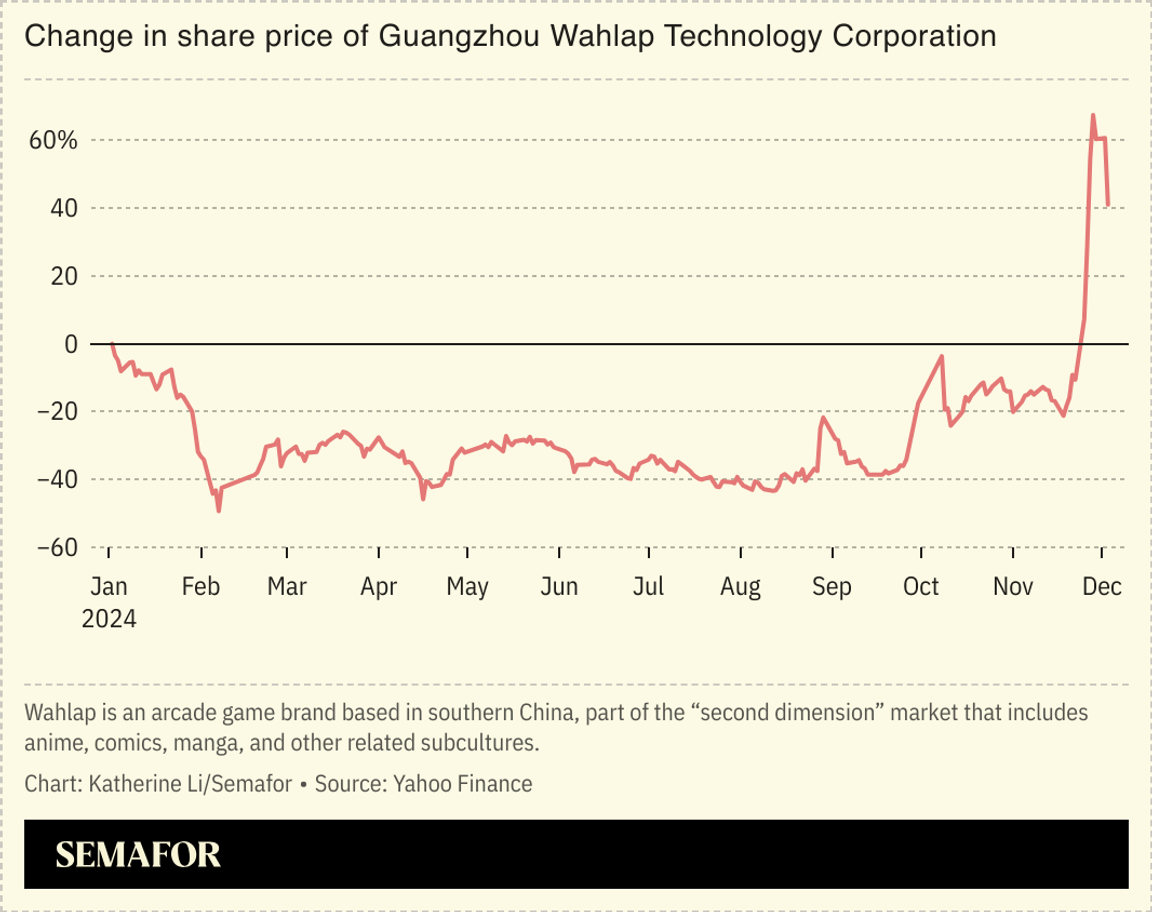 China’s obsession with buying anime-inspired collectibles is being felt in the country’s stock markets, Sixth Tone reported. Children and adults are spending big on trading cards, badges, posters, dolls, and toys, sparking a boom in the multibillion-dollar market known as “second dimension,” which encompasses the subcultures of anime, comics, and manga. Companies in the sector are rushing to list on Chinese stock markets, though their shares are volatile, prompting some firms to urge investor caution. The trend is fueled by young people’s fear of missing out: “Sometimes I think if others are buying so much, I also need to prove myself by buying more,” a college student said. |